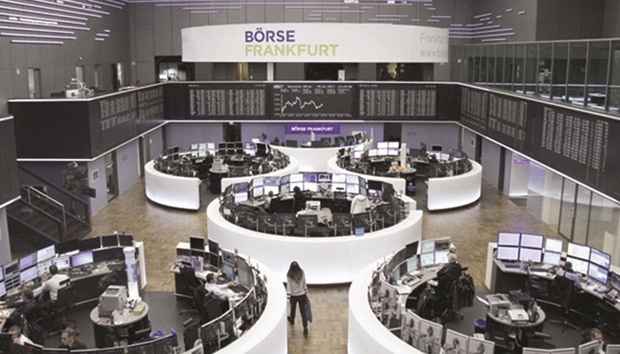The yuan spiked higher yesterday as China moved to support its currency while investors weighed the Fed’s signal that US interest rates may rise faster than expected.
The offshore yuan racked up two-day gains of 1.8%, the biggest on record, Bloomberg reported, as traders scrambled for a currency that’s becoming increasingly scarce and difficult to obtain.
China’s stepped up efforts to crack down on currency outflows comes as the inauguration approaches of Donald Trump, who has criticised Beijing for manipulating the yuan to keep its value low to boost sales to the US.
The dollar slumped against most currencies.
“The weak dollar in the last 24 hours is likely more a function of yuan strength than any change in expectations for US interest rates,” said market analyst Jasper Lawler at London Capital Group.
Meanwhile Wall Street stocks won solid gains Wednesday after the Federal Reserve signalled that US interest rates may rise faster than expected, but that failed to carry over elsewhere.
Asian and European stock markets mostly drifted.
The minutes of the final 2016 policy meeting in December at which the US central bank lifted interest rates hinted at a possible need to raise rates more rapidly than planned owing to “considerable uncertainty” linked to Trump’s fiscal stimulus plans that risks fanning inflation.
“Although Wednesday’s hawkish Fed minutes reinforced some speculations of the central bank raising US rates this year, the substantial uncertainty over how Trump’s policies may impact the US economy could keep investors on edge,” said research analyst Lukman Otunuga at FXTM online brokerage.
“The threat of Donald Trump’s proposed fiscal policies falling short of market expectations has exposed the greenback to downside risks,” he added.
“After the Fed minutes... the focus shifts to the outlook for US jobs” data due today and tomorrow said Chris Beauchamp, chief market analyst at IG trading group.
“The onus is now on the dollar bulls to prove that further advances in the greenback are warranted.” Data released yesterday showed first-time unemployment benefits applications dropped sharply last week to 235,000, to the surprise of analysts, a near 43-year low.
Meanwhile data from ADP showed the private sector created 153,000 jobs in December compared to expectations of 170,000 and a big drop from the 215,000 pace in November.
The “mixed US economic data had a neutral effect on the dollar,” said Lawler.
US stocks failed to gain traction, too, sliding back as investors hammered retailers following reports of disappointing holiday sales from department stores Macy’s and Kohl’s.
London’s benchmark FTSE 100 scraped out modest gains to close at another record high of 0.1% at 7,195.31 points, having earlier struck a new all-time high of 7,211.96 points on positive economic data.
In Germany, the DAX 30 was up 0.01% at 11,584.94 at the close yesterday.
The latest Purchasing Managers’ Index (PMI) for the nation’s key services industry jumped in December to a 17-month peak at 56.2, data compiler IHS Markit revealed in a statement yesterday.

Traders at the Frankfurt Stock Exchange. The DAX 30 gained 0.01% at 11,584.94 yesterday.
